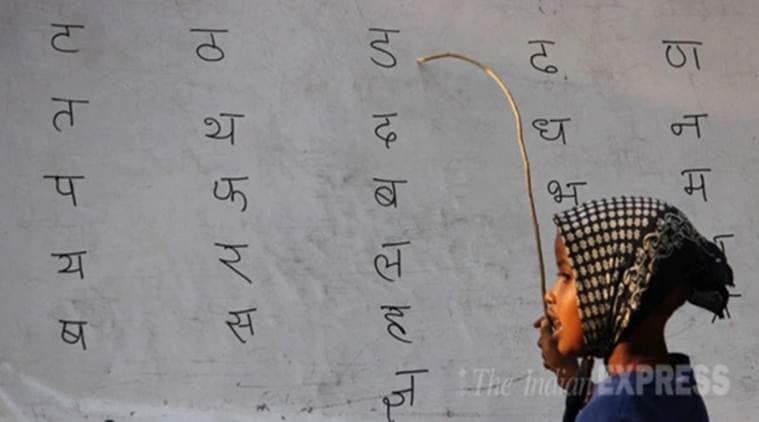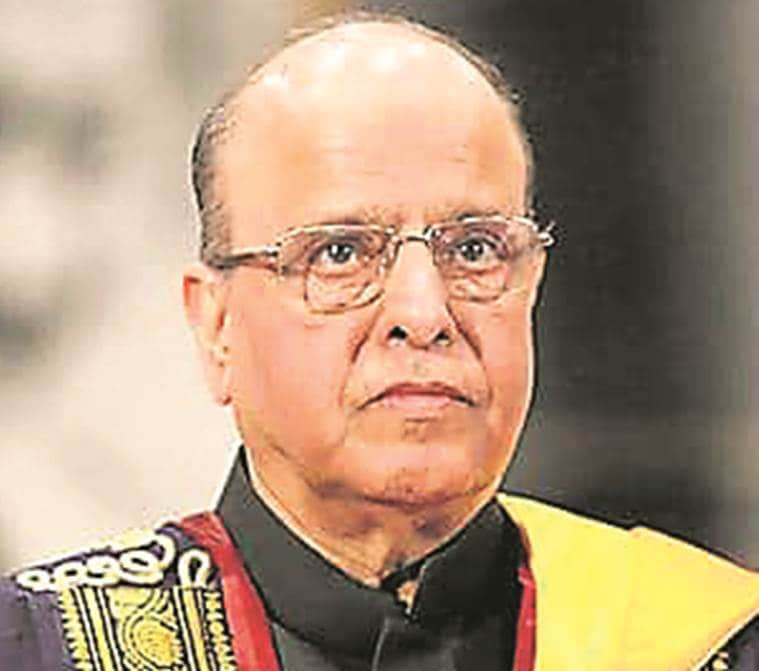
The provision that stipulated Hindi as one of the languages that students should study from Grade 6 was included in the draft National Education Policy (NEP) after detailed discussion and its removal undermines the spirit of the three-language formula, committee members K M Tripathy and Ram Shankar Kureel told The Indian Express on Tuesday.
As first reported by this newspaper, Kureel and Tripathy had on Monday objected to their chairperson K Kasturirangan’s decision to revise a contentious paragraph, dropping a reference to Hindi and English in the recommendation on bringing flexibility in the implementation of the three-language formula.
READ | Draft Education Policy: Elite used English to marginalise large sections of society
Following protests by political parties, mainly in Tamil Nadu, on what they called the “imposition” of Hindi, the HRD Ministry at Kasturirangan’s behest shared a revised document on its website on Monday.

“Parliament had approved the last National Education Policy in 1986 and thereafter the Ramamurti committee had approved the three-language formula. The (NEP 2018) committee has no intention of imposing any language and it isn’t mandatory to implement the formula, but to undermine it completely is also not acceptable. I do not agree with this change,” Tripathy, former chairperson of Uttar Pradesh High School and Intermediate Examination, told The Indian Express.
READ | National Education Policy draft revised, 2 members object
“We all respect him (Kasturirangan). My limited point is that the (NEP) report was finalised based on consensus and made public to seek feedback and inputs from civil society till June 30. Following an adverse reaction from one of the states the document was revised. Tomorrow another state will object to another provision. How long will we keep changing the report? You cannot revise the report based on every reaction,” said Kureel, the former founder vice-chancellor of Baba Saheb Ambedkar University of Social Sciences in Madhya Pradesh
“Let the reactions come in till June 30, then the government can decide which of our recommendations should be retained and which should be dropped,” he added.
According to Kureel, the decision to drop the reference to Hindi in the recommendation related to the three-language formula is a “diversion” from the national goal of promoting the “rashtra bhasha (national language)”. “Language can play a pivotal role in national integration, which is why the three-language formula was adopted. It is the duty of the people of this nation to promote our rashtra bhasha, which is Hindi. The committee had only reiterated that goal. In case a state does not agree to this, they are under no compulsion (to adopt it).”
Justifying the change, Kasturirangan told The Indian Express on Tuesday, “The recommendation (on having flexibility in the choice of languages) was misunderstood. We had assumed that the type of message that paragraph will give to the people who read it would be such that the concept of flexibility, plurality, multilinguism will all be embedded. There is no coercion. But it was understood to be otherwise.”
He added, “We had a version that was also approved by the committee, which is more in tune with the overall spirit of the language policy. We thought that since the revised paragraph doesn’t contain an explicit mention of any language, people’s feelings will be assuaged.”
Asked specifically about the objection raised by Tripathy and Kureel on committee members not being consulted before revising the report, Kasturirangan said, “This has been approved by the committee.” Asked about the chairperson’s above assertion, Kureel said, “Many members did not know when this change was made.”
Emails reviewed by The Indian Express show that the revised paragraph (without reference to Hindi), introduced in the draft policy report on Monday, was debated by the committee members in December last year. Tripathy had objected to the provision on the ground that it dilutes the three-language formula extensively, following which the members were presented with three options of which the one with reference to Hindi was collectively chosen and included in the report submitted to the new HRD Minister Ramesh Pokhriyal on May 31. On Monday, in the wake of political protests, the initial paragraph (without reference to Hindi) was reintroduced in the report.